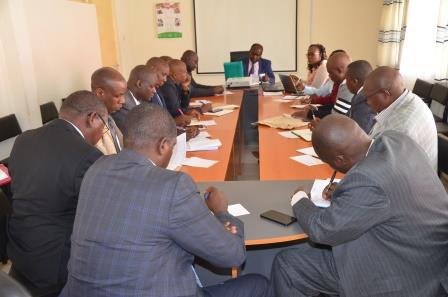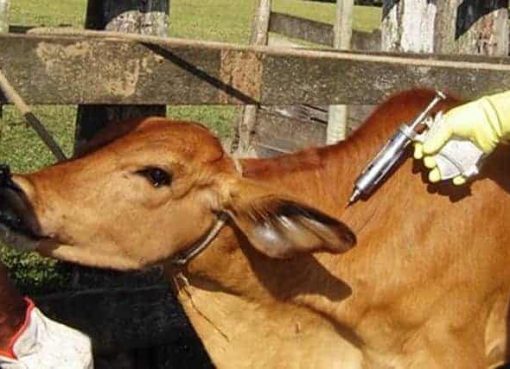Hundreds of farmers in Migori County have grown sugarcane since 1979 as their major industrial crop with a hope of transforming their economic status.
For decades, they turned the sector into their economic mainstay and in the late eighties, they were a happy lot, minting millions in cash from the crop’s sales.
However in the late nineties, all suddenly started going awry with the sole semi-autonomous government miller in the area, South Nyanza Sugar Company – Sony, hastily racing to registering heavy losses annually with farmers’ hue and cries over low cane prices and late payments becoming the order of the day.
The sector is moribund and many farmers are thinking of abandoning growing cane for alternative crops but that have also remained elusive to comprehend.
Almost 39 years into cane farming, the more than 50,000 farmers in the region still live in ramshackle shelters and cannot educate their children, clothe them properly, offer them up to date health care and give out all the basic needs to their families.
“Yet they toil and produce tons of sugar every year which earn them peanuts due to low prices,” laments Mr. Michael Onyango, a prominent sugarcane farmer in the extensive Awendo sugar belt.
From Kuria to Uriri, Rongo and Kabuoch in Homa-bay, diehard sugarcane farmers are today a disappointed lot who accuse the top players in the sector of betraying their hopes largely of swimming in a new wave of economic transformation this century.
A case in point are farmers from Nyamilu village in Uriri sub county whose low living standards sharply contrast the efforts they put year in year out in growing the crop.
The crumbling walls of houses donning the village are a sign of the people’s economic bane, but a population that has kept clinging on the sinking sector, rocked by dishonesty, an unclear policy guidance, corruption and an unfair competition among the players.
“Farmers are unhappy with the sharp decline in prices of cane delivered to factories operating in the region even as cane demands in the market continue to rise ten-fold in the recent years,” says Mr. Paul Otieno, an economist based in Migori town.
Sony, the largest and the oldest sugar miller in the area, has in the past years pricked the nerves of farmers by its unilateral decision to reduce prices from Sh4, 500, the highest cane prices ever paid by local millers to Sh3, 200 per tones of the crop delivered at the factory despite the high cost of production met by famers.
Other millers – the Ndhiwa-based Sukari Industries Company in the neighboring Homa-Bay county and Trans Mara sugar company in Trans Mara sub county, all which came into operation in the region in 2011, have not excited farmers either with their prices that do not commensurate with the cost of producing the crop.
A farmers’ umbrella body; Kenya National Sugarcane farmers Union (KENSGU), recently ruled the offered prices as illegal even as leaked documents indicated that the millers were planning a further price cut on the crop.
For ages, KENSGU branch chairman Mr. Peter Nyamori has been protesting the low prices and illegal deductions imposed on farmers’ produce, saying they were meant to fleece them of their hard earned money against the prices entrenched in the Kenya sugar Act.
Mr. Nyamori says while expectations are high to make cane farming a lucrative activity, the fear is that millers have turned it into a cash-cow to the detriment of the farmers’ development.
Farmers in the region now warn they might be forced to stop producing the crop, but there are growing signs that they cannot survive without the crop which pays much more than maize and tobacco, also major cash crops produced in the region.
As usual, a visitor to this region would marvel at the lush, green patches of well-tendered cane that stand out against a backdrop of weathered maize fields, illuminating several poverty ravaged villages.
To economists, the current status of the local farmers is a sharp contrast of the area’s potential, and they blame dishonesty, corruption and reckless spending for the predicament dogging players in the industry – both millers and farmers.
“Whereas the millers stand accused for offering cane producers peanuts in terms of prices, farmers on the other hand are themselves enemies of their own pockets for failing to spend their income wisely,” says Mr. Elias Owino, an economics student at Maseno University.
“The local sugar millers must admit that growing cane is expensive, especially the cost of inputs like fertilizers, pesticides and seeds, and so it is only worthwhile if the crop fetches good price,” said Mr. Owino during an interview in Migori town.
However, a senior manager at Sony recently told a farmers’ meeting called to try to resolve differences over prices that what the company was paying farmers for a ton of their produce was actually modest and they should stop complaining of being exploited.
“You should be aware that the prices are dictated by prices of sugar in the world market,” said Mr. Benard Otieno, the acting company manager.
But worst affecting both millers and farmers are poor cane seeds, low cane development, high cost of farm inputs, cane poaching between factories-all that cause serious cane shortages and, illegal sugar importation, poor management of the milling plants because of corruption and lack of proper guidance by government.
To guard against cane shortages in future, Sony management in collaboration with research agencies in the county have now come up with sugarcane varieties crafted for faster maturity and higher yields.
The new varieties, the company explains, would automatically cut production costs in terms of energy and money invested in the crop’s tendering from first to last day in the farms.
Some of the varieties will mature within twelve months, cutting the normal waiting harvesting period by half, while others will be giving farmers double yields compared to the varieties they have grown for years now.
The company is also serious with its own cane development instead relying on contracted farmers to feed the plant with the raw material, even as it assists them to grow their acreages.
On the other hand, the government is doing all it can to fight illegal importation and to save the sector from collapse through assisting its sponsored milling companies like Sony, Mumias, Chemelil, Nzoia and others by funding them properly to help them stay afloat.
In those efforts, the State, through the Privatization Commission of Kenya, has shortlisted five semi-autonomous milling factories for selling with a view to improving the plants’ operation.
Those lined up for sale are Sony, Chemelil, Nzoia, Miwani and Muhoroni although leaders from region growing the crop have totally rejected the proposal, citing lack of inclusiveness on matters touching on privatization.
By George Agimba





